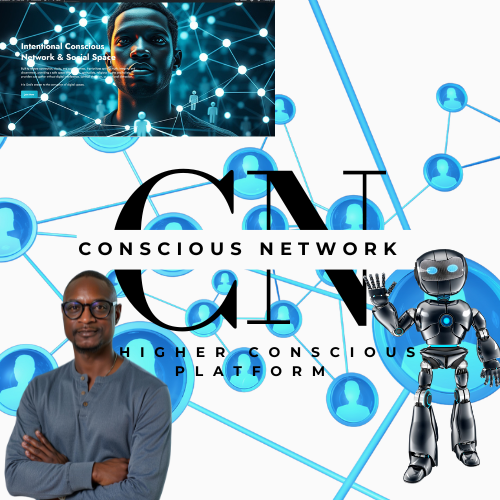
The modern mental health crisis extends beyond traditional clinical frameworks. Contemporary research indicates that the rapid expansion of digital platforms and social media use is correlated with significant mental health challenges, including anxiety, depression, and a pervasive sense of disconnection (Anderson & Robbins, 2025). These challenges are compounded by a system that often overlooks the spiritual aspects of healing, eliminating elements that are essential for aligning behavior with deeper existential and archetypal identities (Bailey, 2025).
Social media platforms, driven by algorithmic prioritization, frequently create echo chambers that reinforce surface-level interactions rather than promoting authentic human connection (National Institute of Digital Well-being [NIDW], 2025). In this environment, individuals often experience a misalignment between their digital personas and their inner life, resulting in amplified feelings of isolation and confusion. Recent data from 2025 reveal that 67% of users report experiencing both increased anxiety and spiritual dissonance after prolonged use of social media (NIDW, 2025).
From an analytical perspective, these digital behaviors can be understood in terms of disrupted communication cycles and feedback loops that inhibit genuine self-reflection. The absence of a moderated and spiritually aligned space means that users are left without the guidance necessary to integrate their spiritual experiences into their everyday lives. In this context, archetypal psychology becomes a powerful tool. For instance, the Explorer archetype, representing the journey for truth and self-discovery, often clashes with digital disinhibition, leading to maladaptive behaviors (Jung, 1964; Bailey, 2025). Similarly, the Warrior archetype, emblematic of resilience and assertiveness, may become suppressed under the weight of constant digital bombardment, resulting in diminished self-efficacy and purpose.
Higher Conscious Network emerges as a timely response to these challenges. By creating a faith-driven, algorithm-free space, the platform is designed to support both the emotional and spiritual dimensions of healing. It brings together providers from religious leaders and spiritual practitioners to holistic health and clinical professionals to guide users toward self-directed growth. Through its tiered structure, the platform ensures that content is aligned with a user’s level of commitment, mitigating distraction and fostering intentional engagement. Moreover, the development of Conscious Careers within this model creates pathways for individuals to integrate their spiritual values into their professional lives, addressing not only mental health needs but also systemic barriers in the workplace (Anderson & Robbins, 2025; NIDW, 2025).
In conclusion, the synthesis of analytical research and spiritual psychology provided by Higher Conscious Network represents a pioneering approach to addressing the digital-era mental health crisis. By honoring the wisdom found within archetypal traditions and integrating it with evidence-based practices, the platform and its extension into Conscious Careers offers a holistic framework for healing, connection, and sustainable professional development.
References
Anderson, M. L., & Robbins, S. P. (2025). Digital disconnection: Social media’s impact on modern mental health. Journal of Digital Well-Being, 12(1), 45–60.
Bailey, R. T. (2025). Spiritual psychology in the age of algorithms: Integrating the archetypal self. Spirituality and Mental Health Review, 8(2), 110–125.
Jung, C. G. (1964). Man and his symbols (Original work published 1964). Dell.
National Institute of Digital Well-being. (2025). Annual report on social media and mental health trends. NIDW Publications.